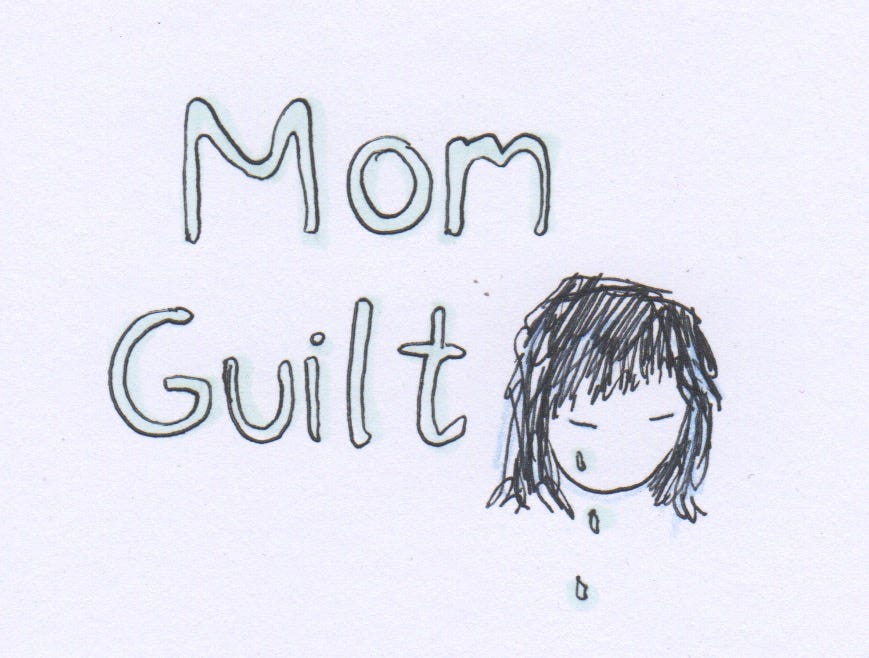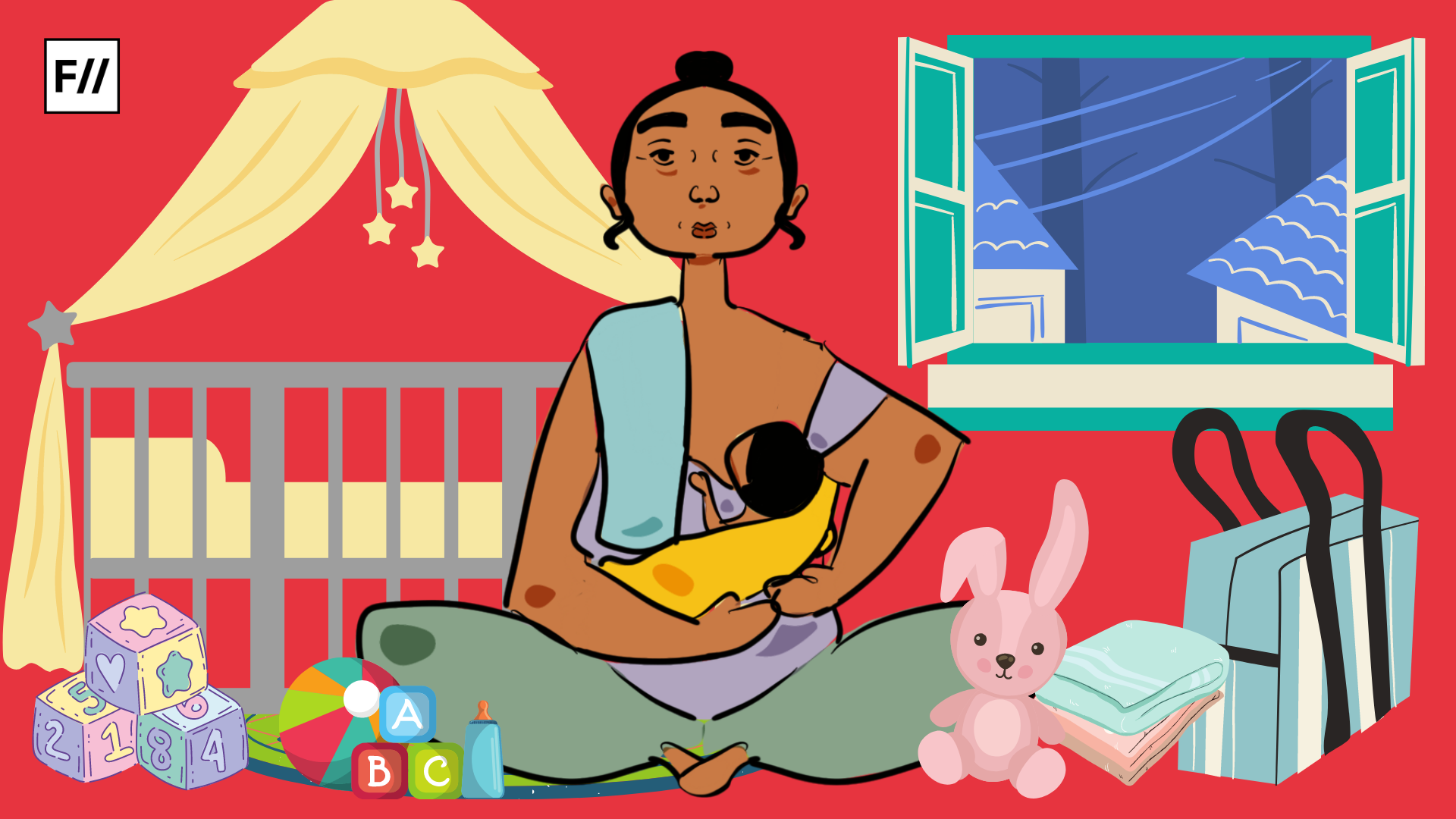Mother’s guilt or guilty mother syndrome involves a range of emotions from feeling guilty about not doing enough as a parent, not doing things right, or making decisions for the child that may be adverse in the long run. The guilt experienced by the mother becomes heavier than the father due to gender roles which mandate that mothers are the primary caregivers of children, and that they must at all times be fully and only invested in their child.
Motherhood starts right from the onset of pregnancy, wherein women are to take special care of their food intake and health as their lifestyle affects the baby’s development and growth. Welcoming a baby in itself is overwhelming and challenging. Too many things happen at once from body and hormonal changes, insecurities, emotional heaviness, to giving the infant attention and care round the clock.
As fulfilling experience of motherhood is for most, the challenges it brings can affect the mother’s routine and health in several ways. There are several situations that can make a mother question her actions and decisions, and this may lead to guilt and the negative self-image of being a ‘bad mother’.

The burden and expectations that mothers have to live up to, further create a vicious cycle of emotions that exacerbate feelings of guilt. Motherhood is different for everyone and does not necessarily account as painful or guilt-filled for all. But the fact that we expect mothers to fit into certain pre-defined, gendered notions of nurture, and caregiving, makes it burdensome for mothers, especially when they are just trying to get accustomed to their new routine, physical changes, hormonal fluctiations and emotional overload.
Having the partner/co-parent share the burden of caretaking and household tasks helps lessen the chances of falling into the vulnerability of guilt as work gets divided and allows room for the mother to create space both with the child and with herself, and to be able to provide themselves with basic attention and care. Not compromising on time with the child is one of the most suggested ways to combat mother’s guilt. Making sure that you know well and enough about your child by spending a stipulated amount of time without fail on a regular basis can help to fill any possible mental distress that might occur due to mother being involved in other activities
A full-time working mother of two kids says that she did not face any mother’s guilt, except for the one time she went late to pick her son up from school. This, she analyses and concludes that humans are perceptive to errors and circumstances are inevitable which can delay things. She made sure to teach her son that his mother can be late on occassions, and he would have to wait peacefully and adjust to being in that space.
Office-going mothers have their own share of pain to bear, the majority of which starts at the point of leaving their children at home and not being able to take care of them all the time while being at work. A 2-year-old daughter’s working mother expressed guilt in being unable to be occupied with her daughter’s routine while she’s at work.
She openly conveyed her fears as a mother who started working with a month-old infant and the guilt of not being able to nurture her at the same time as expected of her. In all of this, both mothers had a common thought: that they have to work in order to fulfill the financial needs of the family and hence, they had to get over their mother’s guilt because standing in that place for long would be counter productive.
Also read: ‘Shakuntala Devi’ And The Patriarchal Trope Of The ‘Good Mother’

Apart from the conversations with mothers which tells us that guilt does happen with varying intensity, research tells us that it is very real and has varied effects on mothers. Its effects on mental health range from imbalance in brain chemicals leading to depression, low self-worth, and inability to take criticism, while exhaustion, hormone imbalances, and immune system damage account for physical effects.
Several mothers shared the frustration which creased their relationship with the child and other members of the family. This is bound to happen with several changes that happen postpartum, which do not disappear instantly. Accepting the possible changes and understanding the underlying relations would help iron out the creases with the child and others, as well as make a safe space for mothers to not push themselves into the pit of guilt.
Lastly, mothers do not have to carry the baggage of being perfect. They are individuals who are bound to make mistakes, need help and are not obligated to do it all at the cost of their mental of physical well being. Our general perception of motherhood as a sacred, all sacrificing act which must be the sole priority of every mother makes it difficult for mothers to come out of the internalised feeling that they must not think of anything other than the child at all times
Having the partner/co-parent share the burden of caretaking and household tasks helps lessen the chances of falling into the vulnerability of guilt as work gets divided and allows room for the mother to create space both with the child and with herself, and to be able to provide themselves with basic attention and care. Not compromising on time with the child is one of the most suggested ways to combat mother’s guilt. Making sure that you know well and enough about your child by spending a stipulated amount of time without fail on a regular basis can help to fill any possible mental distress that might occur due to mother being involved in other activities.
One of the mothers shared that she does not hide her absence from her daughter, that she makes sure that her daughter knows she will be away for some time and be back. Hence, she shares how important it is to have clear communication with the child from the beginning. It was a little hard for her at the start, but gradually, her daughter adapted to it and joyfully says goodbye to her mother for work.

Lastly, mothers do not have to carry the baggage of being perfect. They are individuals who are bound to make mistakes, need help and are not obligated to do it all at the cost of their mental of physical well being. Our general perception of motherhood as a sacred, all sacrificing act which must be the sole priority of every mother makes it difficult for mothers to come out of the internalised feeling that they must not think of anything other than the child at all times.
Fathers do not undergo similar stress because we as a society allow men to be away from falimy for work, and seldom question their absence in parenting activities like bedtime stories, school events and the like, because men are considered as individuals who work, and their work is also thought of to be important.
We need to understand that it is the same in the case of mothers. They are individuals who have other vocations, important work and roles to play in life apart from being mothers. Addressing this gender bias and facilitating equal parenting standards can go a long way in helping mothers out of unnecessary guilt and negative self-image.
Also read: Dominant Idea Of ‘Good Mother’ Destroys Children And Their Childhood
Featured Illustration: Ritika Banerjee For Feminism In India
About the author(s)
Sonal specializes in social and political writing and considers it to be her strongest skill. She is an undergrad media student who never fails to voice her opinion on matters and isn't afraid to express her heart. She has worked as a social media manager and a content writer. Sonal enjoys running, reading, and dancing, all as an amateur but by grace





Thank you for this from someone who has lived and breathed mom guilt for years. I had written a related piece for moms who may come to resent motherhood precisely for this reason—patriarchally-imposed mythical standards of self-sacrificing moms: https://feminisminindia.com/2020/05/18/motherhood-national-security-modest-proposal/
We need more voices and more reminders that it’s ok to be ok and not perfect. And, that choosing not to be a mother is ok too. I love Mona Eltahawy on this: https://www.feministgiant.com/p/unmothering?s=r